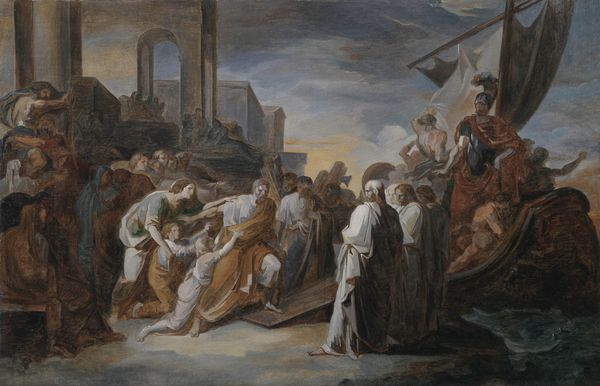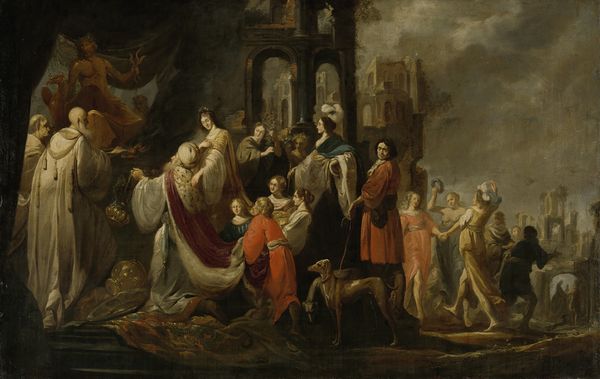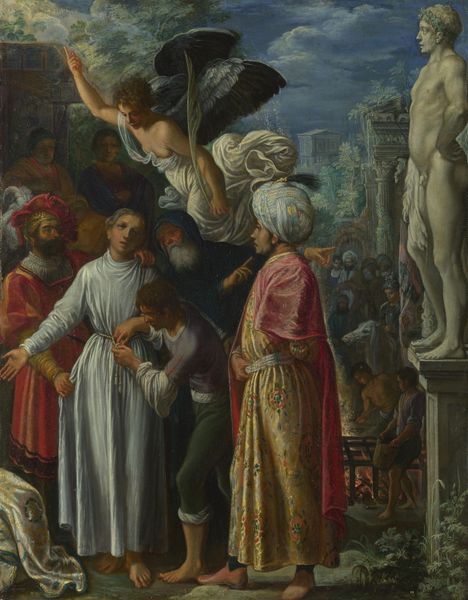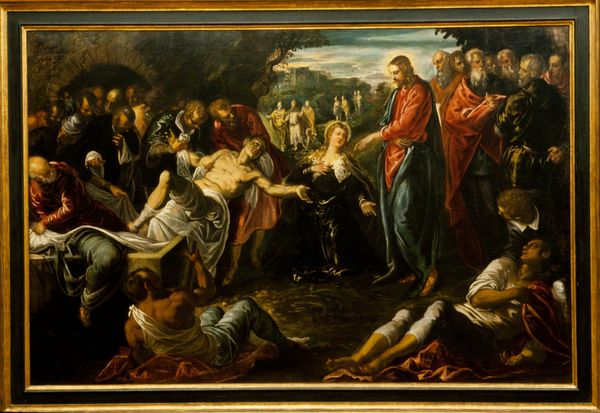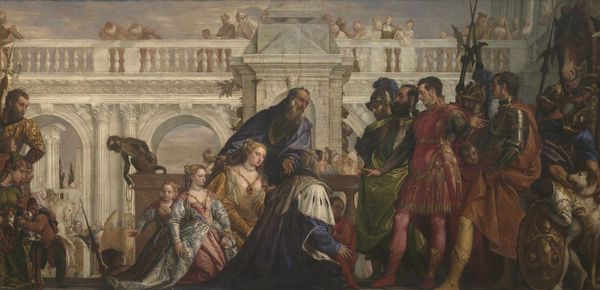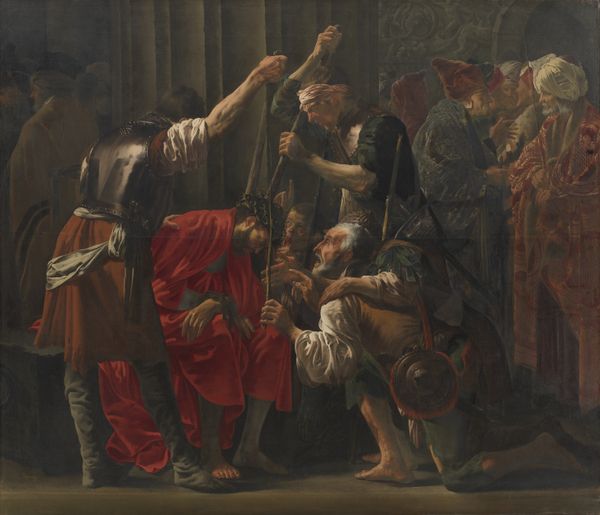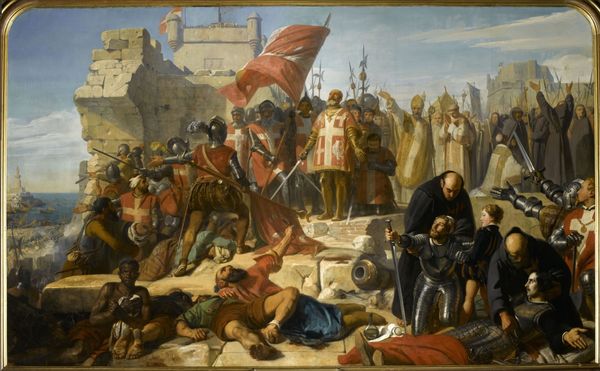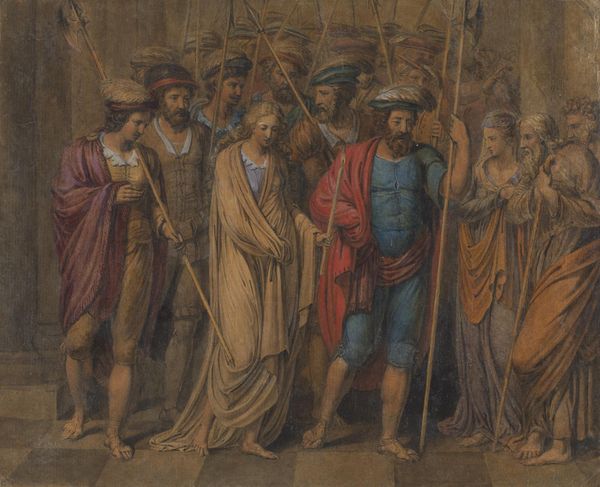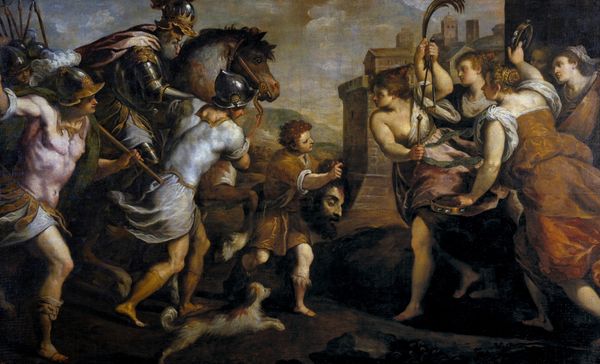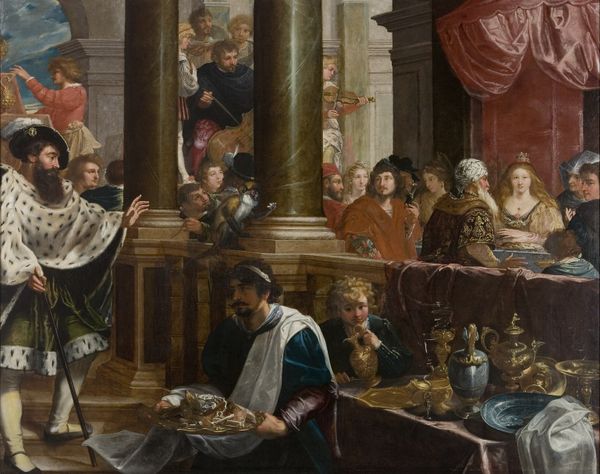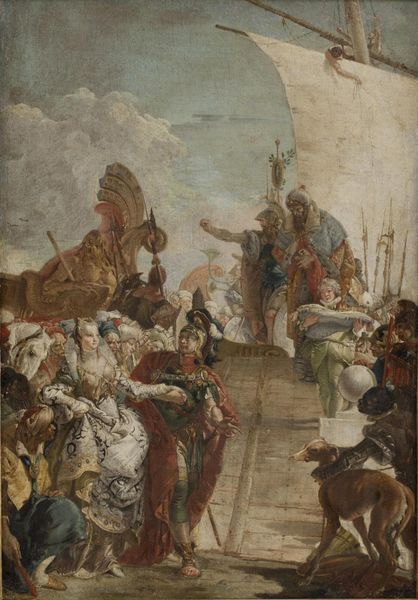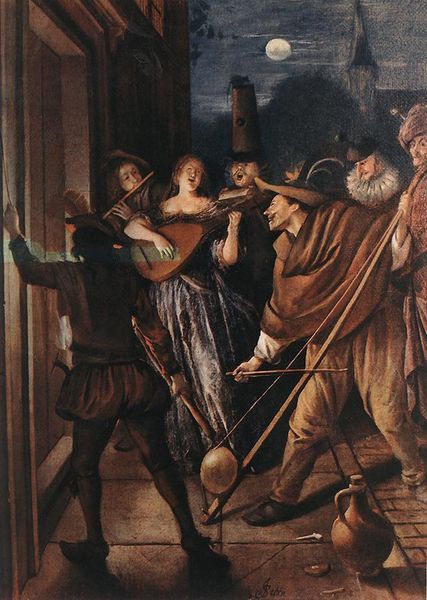
painting, oil-paint
#
portrait
#
high-renaissance
#
painting
#
oil-paint
#
landscape
#
figuration
#
oil painting
#
history-painting
#
italian-renaissance
Copyright: Public domain
Curator: Titian’s monumental oil painting, "Ecce Homo," compels us to consider a pivotal moment laden with moral and political complexity. Editor: It certainly is powerful. The energy—the turmoil—just radiates from the canvas. All those figures packed together, almost spilling out of the frame. It feels overwhelming, almost deliberately so. Curator: Precisely. This work visualizes a convergence of power dynamics: religious authority, Roman imperial might, and the plight of the individual confronting a prejudiced mob. Look how Titian stages Christ’s presentation; Pilate appears almost as an actor playing to the crowds. It feels so deliberately manipulative, so familiar in terms of contemporary politics, with leaders orchestrating consent, manufacturing dissent, and performing displays of power for social impact and long-term cultural change. Editor: The staging you point out is very revealing. Symbolically, the figures behind Christ are cast into deep shade as though embodying forces that actively seek to undermine good—the heavy use of dark pigments certainly enforces a particular mood of deep unease. And note the bright dress on the mother—I can't help but believe that is purposeful and laden with religious imagery associated with light, salvation, purity. There's a striking contrast between light and shadow, innocence and cruelty. Curator: Yes, Titian cleverly employs that chiaroscuro to heighten the dramatic tension. Think of the sociopolitical structures represented by figures like Pilate against the vulnerable subjects pleading for Christ’s release. It evokes a complex reading of class and privilege too. Editor: What is really fascinating about the piece is that Titian avoids easy answers. There is a certain humanity amidst what is clearly a very tense historical event. Perhaps we can be more critical, introspective and thoughtful, regardless of who we are. Curator: Agreed. Ultimately, "Ecce Homo" remains a poignant commentary on justice, power, and the echoes of the past reverberating into our present. Editor: Indeed. This piece clearly presents potent allegories that speak across centuries, demonstrating Titian’s insightful analysis of human nature.
Comments
No comments
Be the first to comment and join the conversation on the ultimate creative platform.
